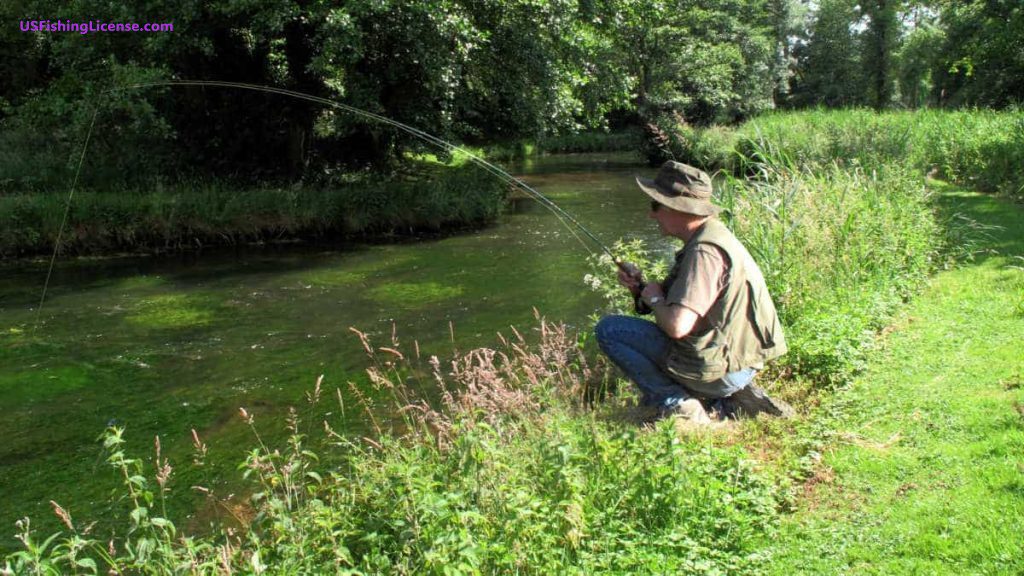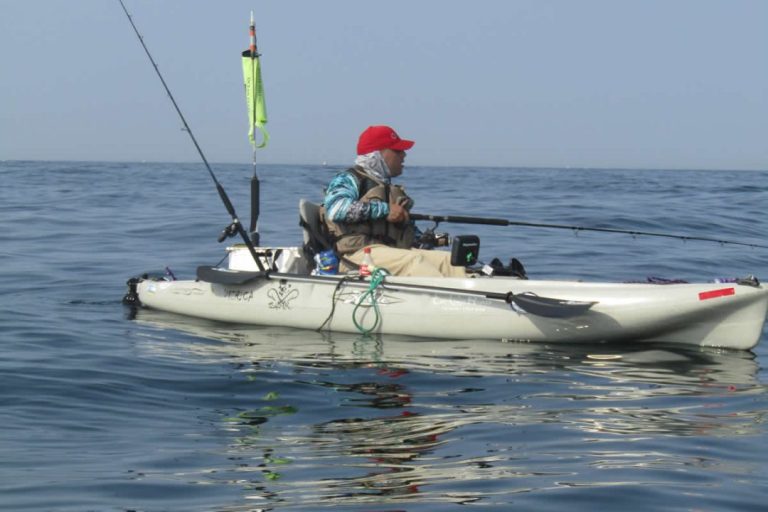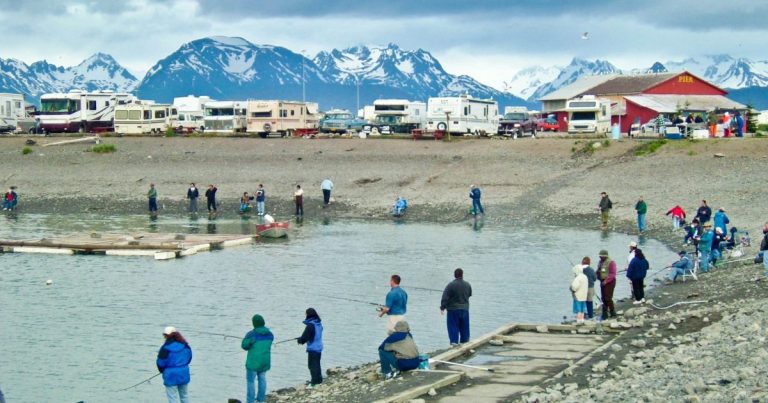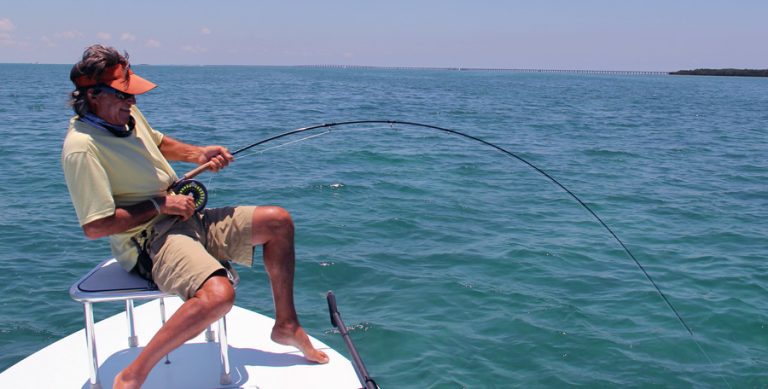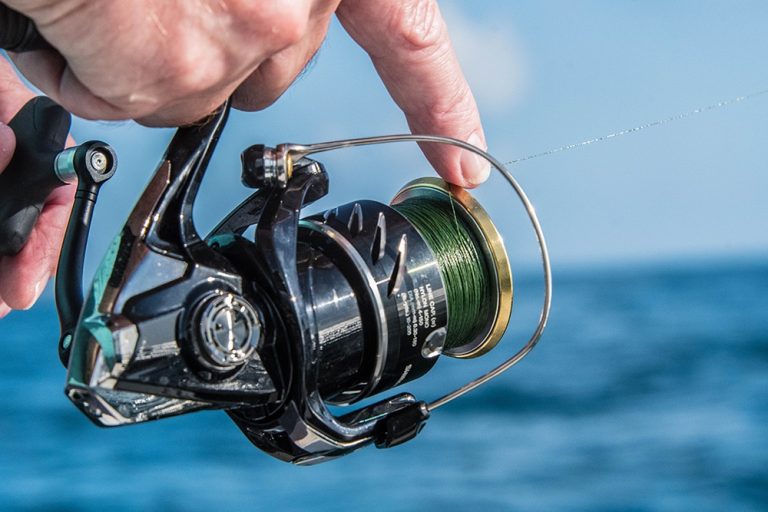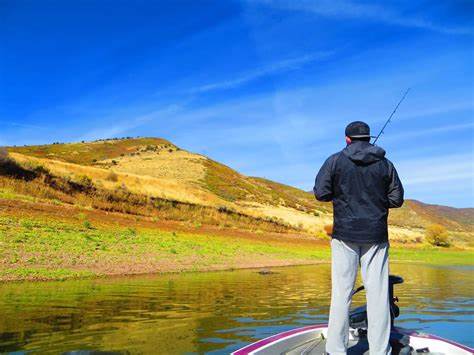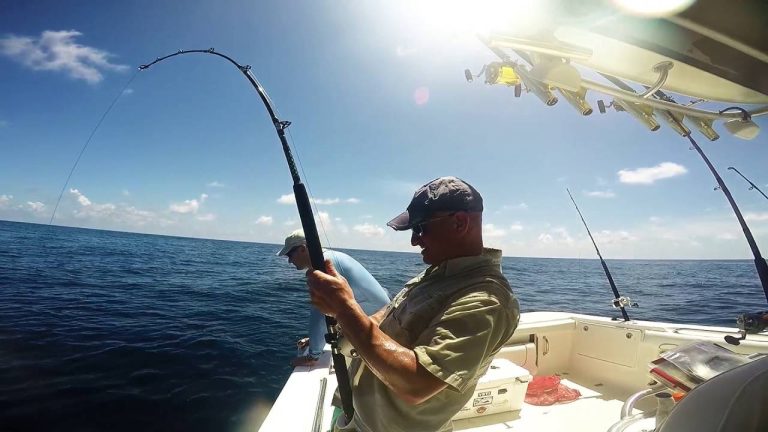Maine, with its 3,478 miles of coastline, 6,000 lakes and ponds, and over 32,000 miles of rivers and streams, is a true paradise for fishing enthusiasts. In 2023, recreational fishing contributed over $500 million to Maine’s economy, highlighting its importance to the state. Whether you’re casting a line for striped bass in Casco Bay or ice fishing for landlocked salmon in Moosehead Lake, a valid fishing license is your ticket to these incredible experiences.
This comprehensive guide will walk you through everything you need to know about obtaining and using a Maine fishing license in 2025, ensuring you’re well-prepared for your next angling adventure in the Pine Tree State.
Who Needs a Maine Fishing License?
In Maine, most anglers aged 16 and older must possess a valid fishing license to fish in both inland and marine waters. This requirement applies to residents and non-residents alike. However, there are a few notable exceptions:
- Children under 16 can fish without a license
- Maine residents aged 70 or older are eligible for a free lifetime fishing license
- Individuals fishing on their own land for personal use
It’s crucial to note that even if you fall under one of these exceptions, you must still adhere to all fishing regulations, including bag limits and size restrictions.
Types of Maine Fishing Licenses
Maine offers a variety of fishing license options to accommodate different needs and preferences. Here’s a breakdown of the main categories:
Resident Licenses
- Resident Fishing License (16 and older): Allows fishing in both inland and marine waters for individuals who have resided in Maine for at least 3 months prior to application.
- Resident Combination Fishing & Hunting License (16 and older): Covers both fishing and hunting privileges for Maine residents.
- Resident Serviceman Combination License (16 and older): Available to Maine residents on active duty in the U.S. Armed Forces.
Non-Resident Licenses
- Non-Resident Season Fishing License (16 and older): Grants fishing access in all Maine waters for the entire season.
- Non-Resident 15-Day Fishing License (16 and older): Valid for 15 consecutive days from the purchase date.
- Non-Resident 7-Day Fishing License (16 and older): Valid for 7 consecutive days from the purchase date.
- Non-Resident 3-Day Fishing License (16 and older): Valid for 3 consecutive days from the purchase date.
- Non-Resident 1-Day Fishing License (16 and older): Valid for 24 hours from the time of purchase.
Specialized License Types
- Alien Season Fishing License (16 and older): Designed for non-U.S. citizens who are not Maine residents.
- Lifetime Fishing License (5 and older): Available to both residents and non-residents, valid for the license holder’s lifetime.
- Atlantic Salmon License: Required in addition to a regular fishing license for those targeting Atlantic salmon in specific waters.
Maine Fishing License Costs (2025)
Fishing license fees in Maine may vary slightly from year to year. As of 2025, here are the costs for some of the most common license types:
| License Type | Resident | Non-Resident |
|---|---|---|
| Season Fishing | $25 | $64 |
| Combination Fishing & Hunting | $43 | N/A |
| 15-Day Fishing | N/A | $47 |
| 7-Day Fishing | N/A | $43 |
| 3-Day Fishing | N/A | $23 |
| 1-Day Fishing | N/A | $11 |
| Lifetime Fishing (5-15 years) | $150 | $450 |
| Lifetime Fishing (65 and older) | $50 | $50 |
| Atlantic Salmon License | $15 | $30 |
Note: Prices are subject to change. Always check the official Maine Department of Inland Fisheries & Wildlife website for the most up-to-date information.
How to Purchase a Maine Fishing License
Maine offers several convenient methods to obtain your fishing license:
Online Purchase
The quickest and most convenient way to get your license is through the official Maine Department of Inland Fisheries & Wildlife website. You can complete the entire process from home and print your license immediately.
In-Person Purchase
You can buy your fishing license in person at various locations throughout Maine, including:
- Maine Department of Inland Fisheries & Wildlife main office in Augusta
- Regional offices of the Maine Warden Service
- Many town clerks’ offices
- Authorized license agents (sporting goods stores, bait shops, and convenience stores)
To find a license agent near you, use the Maine Fishing License Agent Locator tool on the official website.
Phone Purchase
For those who prefer to buy their license by phone, call the Maine Department of Inland Fisheries & Wildlife at (207) 287-8000 during regular business hours.
Understanding Maine Fishing Regulations
Before you cast your line, it’s essential to familiarize yourself with Maine’s fishing regulations to ensure a safe, enjoyable, and legal fishing experience. Here are some key points to keep in mind:
Fishing Seasons
Maine’s fishing seasons vary depending on the fish species and the body of water. For example:
- General open water fishing season: April 1 to September 30
- Ice fishing season: January 1 to March 31 (on most waters)
- Special regulations apply to certain species like Atlantic salmon and brook trout
Always consult the current fishing laws and regulations book for specific dates and any seasonal closures.
Bag and Size Limits
- Daily Bag Limits: Pay attention to the daily catch limits for each fish species. For instance:
- Landlocked salmon: 2 fish daily limit
- Brook trout: 2 fish daily limit in most waters
- Striped bass: 1 fish daily limit between 28 and 35 inches
- Size Restrictions: Some fish species have minimum length requirements. For example:
- Landlocked salmon: Minimum length of 14 inches in most waters
- Striped bass: Must be between 28 and 35 inches
Measure your catch carefully and release any fish that don’t meet the size criteria.
Fishing Methods and Gear Restrictions
- Prohibited Methods: Certain fishing techniques, such as snagging or using explosives, are strictly prohibited. Stick to legal fishing methods to avoid fines and protect the environment.
- Gear Restrictions: Some waters may have specific gear restrictions, such as fly fishing only or artificial lures only. Always check the regulations for the specific water you plan to fish.
Invasive Species Prevention
Be aware of invasive fish species and take steps to prevent their spread:
- Clean your fishing gear thoroughly between fishing trips
- Never release live bait into the water
- Learn to identify invasive species and report any sightings to the Maine Department of Inland Fisheries & Wildlife
For the most current and detailed information on Maine’s fishing regulations, consult the Maine Fishing Laws & Rules published annually by the Department of Inland Fisheries & Wildlife.
Fishing Opportunities in Maine
Maine offers a diverse range of fishing experiences for anglers of all skill levels. Here are some popular fishing destinations and target species:
Coastal Fishing
- Casco Bay: Known for striped bass, bluefish, and mackerel
- Penobscot Bay: Excellent for cod, haddock, and pollock
- Kennebunk River: Popular for striped bass and bluefish
Freshwater Fishing
- Moosehead Lake: Maine’s largest lake, famous for landlocked salmon, lake trout, and brook trout
- Rangeley Lakes: A chain of six lakes known for excellent trout and salmon fishing
- Sebago Lake: Home to landlocked salmon, lake trout, and smallmouth bass
Ice Fishing
- Long Lake: Popular for togue (lake trout) and cusk
- China Lake: Known for brown trout and largemouth bass
- Messalonskee Lake: Excellent for northern pike and white perch
Supporting Maine’s Conservation Efforts
When you purchase a Maine fishing license, you’re not just gaining access to world-class fishing opportunities – you’re also contributing to vital conservation efforts. The revenue generated from fishing license sales helps fund various initiatives, including:
- Fish stocking programs to maintain healthy populations
- Habitat restoration projects to improve aquatic ecosystems
- Water quality monitoring to ensure clean, healthy waters
- Fisheries research and management for sustainable fishing
- Educational programs promoting responsible angling practices
Success Stories
Maine’s conservation efforts have led to several notable successes:
- Atlantic Salmon Restoration: Ongoing efforts have seen an increase in Atlantic salmon returns to Maine rivers, with 1,603 salmon returning to the Penobscot River in 2022, up from just 509 in 2014.
- Lake Trout Recovery: Successful management practices have led to the recovery of native lake trout populations in several Maine lakes, reducing the need for stocking.
- Invasive Species Control: Proactive measures have helped prevent the spread of invasive fish species like northern pike in many of Maine’s waterways.
Your fishing license is an investment in the future of Maine’s aquatic resources, ensuring that generations to come can enjoy the same fantastic fishing experiences.
Frequently Asked Questions
Q: Can I fish in both fresh and saltwater with a Maine fishing license?
A: Yes, a standard Maine fishing license allows you to fish in both inland (freshwater) and marine (saltwater) environments.
Q: Do I need a separate license to fish for specific species like Atlantic salmon?
A: Yes, some species like Atlantic salmon require an additional permit. Always check the current regulations for species-specific requirements.
Q: Can I get a refund if I don’t use my fishing license?
A: Maine fishing licenses are generally non-refundable. However, exceptions may be made in certain circumstances. Contact the Maine Department of Inland Fisheries & Wildlife for more information.
Q: Are there any free fishing days in Maine?
A: Yes, Maine typically offers free fishing weekends in February and June. During these times, anyone can fish without a license, though all other fishing regulations still apply.
Q: Can I use my Maine fishing license in other states?
A: No, Maine fishing licenses are only valid within the state. You’ll need to purchase a separate license for fishing in other states.
Conclusion
Obtaining a fishing license in Maine is a straightforward process that grants you access to some of the most spectacular fishing destinations in the United States. By following the steps outlined in this guide and staying informed about the state’s fishing regulations, you’ll be well-prepared for a memorable and rewarding angling adventure in Maine.
Remember, your fishing license is more than just a permit – it’s a contribution to the conservation and preservation of Maine’s invaluable aquatic resources. So grab your gear, get your license, and get ready to experience the incredible fishing opportunities that Maine has to offer!
For the most up-to-date information on fishing licenses and regulations in Maine, always refer to the official Maine Department of Inland Fisheries & Wildlife website. Tight lines and happy fishing!
Can I fish in both inland waters and marine waters with a single license?
Yes, most Maine fishing licenses cover both inland and marine waters, allowing you to explore a wide range of fishing spots across the state.
Do I need a separate license for ice fishing?
No, your regular fishing license also covers ice fishing in Maine. However, be sure to check the specific regulations for the body of water you plan to ice fish on, as some may have additional restrictions.
Can I purchase a fishing license for someone else?
Yes, you can buy a fishing license as a gift for another person. Just make sure to have their correct personal information, such as name, address, and date of birth, when making the purchase.
What happens if I lose my fishing license?
If you purchased your license online, you can easily reprint it from the Maine Department of Inland Fisheries & Wildlife website. If you bought your license in-person or by phone, contact the department for assistance in obtaining a replacement.



